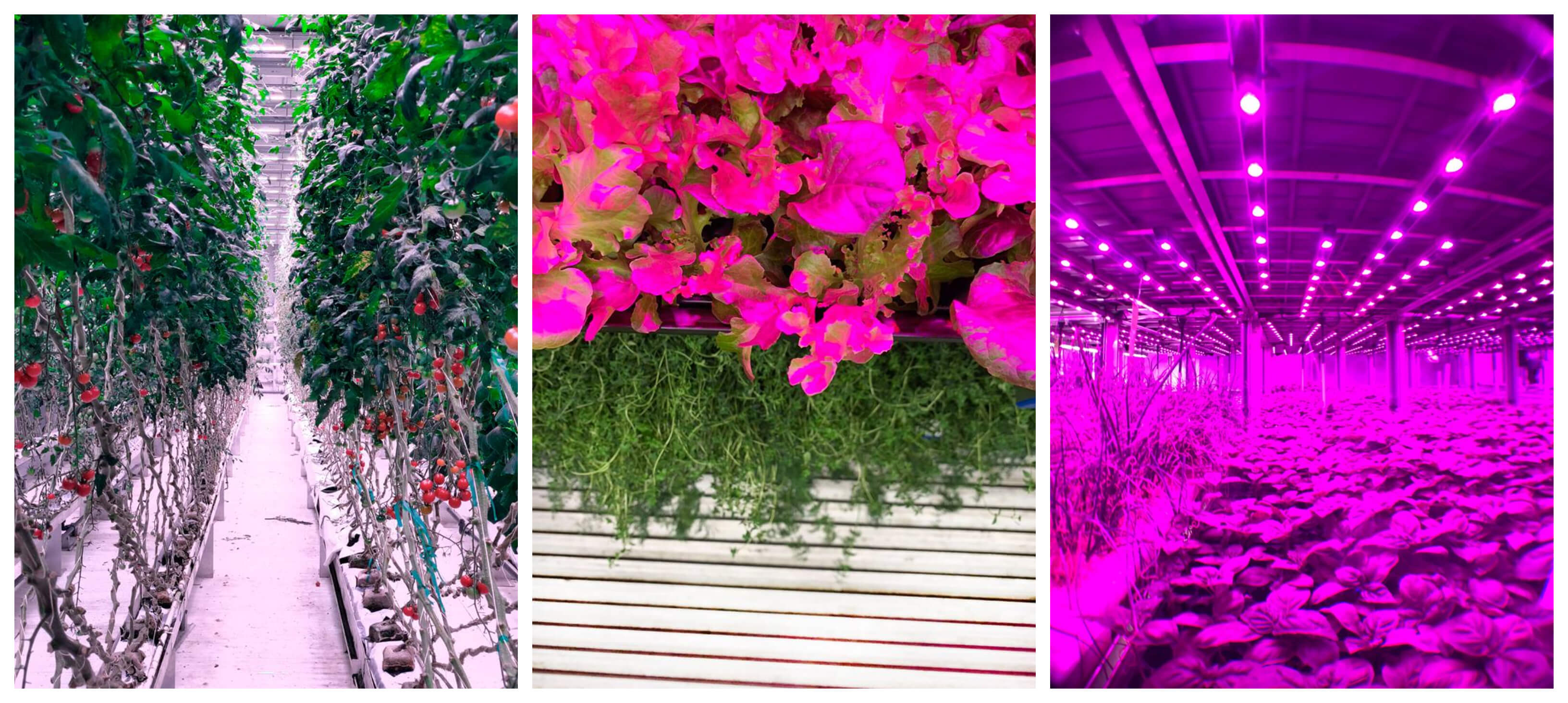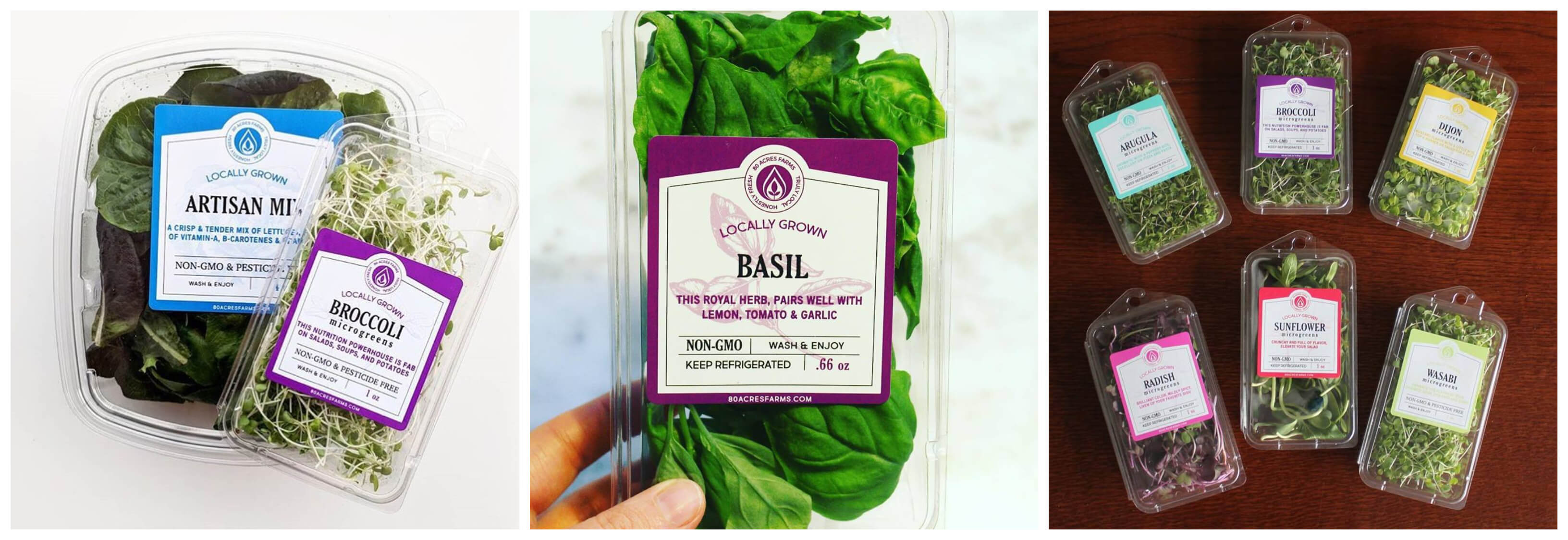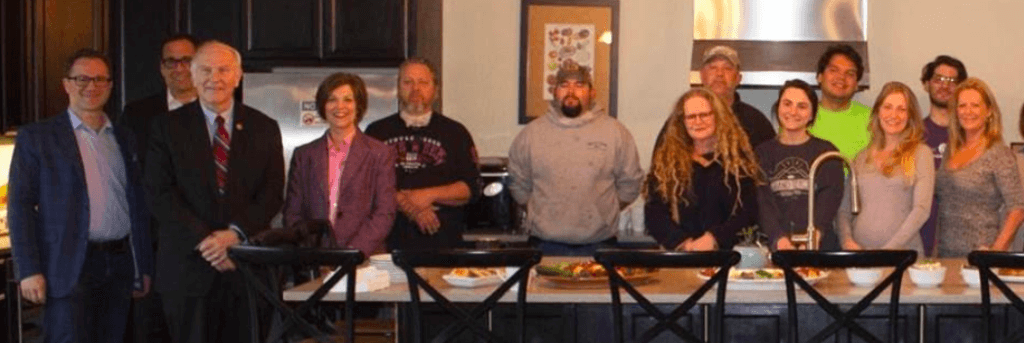Have you ever wondered why produce like tomatoes or apples just don’t taste as good as they used to? As fresh produce has to travel over 1500 miles to reach the consumer, farmers and the supply chain emphasize on yield and durability over flavor and nutrition. That’s about to change with 80 Acres Farms, a Cincinnati, Ohio based indoor vertical farming startup which aims to bring taste and nutrition back into your fruits, vegetables, and greens. The company is on a mission to “provide accessible, nutritious, tasty and affordable local food to everyone”.
Growing Population and Unsustainability of Traditional Farming
The United Nations estimates that earth will be home to over 9.8 billion people by 2050. The path to ensuring food security for such a large population is rife with challenges as one-fifth of the earth’s vegetated land surface shows a persistent declining trend in productivity, half the global population lives in potentially water scarce areas, and climate change is leading to dramatic weather swings. Agricultural practices have also been feeding into land deterioration and water scarcity pressures. On the one hand, agriculture uses 70% of the freshwater withdrawals while on the other it is a major contributor to water pollution and contamination with chemical runoffs.
Consumer expectations and business practices also contribute to the problem. As consumers ‘buy with their eyes’ and look for that perfect looking produce, supermarkets discard fruits and vegetables worth $15 B every year. The discarded ‘subpar’ produce is often rejected for not matching cosmetic expectations.
At a time when the sustainability of traditional agriculture is being questioned and consumers are demanding more taste in their fruits and vegetables, urban farming has emerged as a possible solution.

Inside 80 Acres Farms (PC: 80 Acres Farms)
How 80 Acres Farms Does It
80 Acres Farms grows microgreens, leafy greens, culinary herbs, vine crops and fruits indoors. With a team of scientists, engineers and farmers supported by state of the art technology to monitor and regulate the environment, 80 Acres Farms is able to provide plants with essentials like water, nutrients, CO2 and energy indoors.
While growing crops indoors, managing and maintaining the required delicate balance in the environment is critical to ensure success. The indoor facilities are divided into various ‘grow zones’, each specifically designed and modulated for a particular crop type. Plant seeds are germinated and then transported to their respective ‘grow zones’. The air and water are filtered every 82 seconds to ensure that the atmosphere is clean. Computer-assisted systems monitor the areas closely.
By farming hydroponically, 80 Acres Farms exposes the plant’s roots to a mineral nutrient solution that contains all of the essential nutrients instead of using soil. As plants grow, they require different nutrients at different stages of their growth. Special nutrition recipes are provided at each stage. By monitoring what is fed into and released by the plants, the technicians monitoring the plants know what is consumed and replenish what the plants need.
While outdoor farms rely on sunlight as the major source of energy, indoor farms use LED lights instead. Back in the early 1940s, scientists had figured out that among the broad spectrum of light, plants need red and blue bands in the photosynthesis process. Advances in LED technology allow producers to manipulate red, far red and blue bands. These manipulations in different mixes combined with other factors such as light duration and intensity give out different ‘light recipes’. 80 Acres Farms uses different light recipes to influence outcomes such as taste, nutrition value, and growth. An example of this is the sweet version and another piquant version of basil that 80 Acres Farms grows from the same plant by simply manipulating the light recipe.
Urban farming removes the logistical hassles of transporting produce from farms to the market, giving 80 Acres Farms the freedom to focus on getting seed varieties with the highest nutritional profile and richest flavor. 80 Acres Farms also has the luxury of letting the fruits and vegetables ripen on a vine and harvesting them only after they have attained full maturity. This ensures that the harvest has the full flavor potential and nutritional value.

80 Acres Farms Products (PC: 80 Acres Farms)
80 Acres Farms’ Advantages
80 Acres Farms’ indoor vertical farming model has many advantages over traditional farms as well as greenhouses such as Gotham Greens. While Gotham Greens claims to use 90% less water than traditional agriculture methods, 80 Acres Farms is slightly ahead, consuming 97% less water. While Gotham Greens has yields 30 times higher than that of traditional farms, 80 Acres Farms has an edge claiming yields of over 100 times. 80 Acres Farms can also grow crops faster than traditional farms and greenhouses. For example, it can grow spinach in a quarter of the time it takes in a field and half the time it takes in a greenhouse.
Gotham Greens and 80 Acres Farms have many similarities as well. As plants are grown without pesticides, there is no risk of chemical runoff. The advantage of growing locally is the elimination of thousands of food miles and a decrease in food waste. The 100% use of renewables as a source of energy adds to the sustainability proposition of 80 Acres Farms and Gotham Greens when compared to traditional farms. The crops grown are also GMO-free. As plants can be grown 365 days a year, barriers placed by seasonality no longer constrain what can or cannot be grown. Fresh produce is available all year long. As plants are grown in a controlled and secure environment, risks from pests and diseases are minimized.

Origin Story
With a desire to make a difference in the food industry, Mike Zelkind (CEO) and Tisha Livingston (President) co-founded 80 Acres Farms in 2015. In an interview with Greenhouse Management, Mike said “I felt like there was a real need. The food that we eat is not the same quality as what we ate 20 or 30 years ago.”
While the two co-founders were food industry veterans having worked at companies such as Sager Creek Vegetable Company (a division of Del Monte Foods) and Conagra Foods in various roles, they had no experience in horticulture and growing produce. The duo traveled the world to understand different technologies and growing methods.
The duo acquired an abandoned warehouse in Cincinnati and started their indoor farm by placing two shipping containers fit with state of the art technology to monitor and regulate the environment. Their name ‘80 Acres Farms’ comes from their ability to grow nearly 200,000 pounds of produce annually in their 12,000 square feet facility that would otherwise require 80 acres.

80 Acres Farms at various retail outlets (PC: 80 Acres Farms)
Taking Urban Farming To The Next Level
80 Acres Farms has been selling commercially since the beginning of 2017. Their customers include retail stores such as Whole Foods, US Foods, Dorothy Lane Markets, Clifton Market, Jungle Jim’s Market as well as restaurants. The feedback from clients has been extremely positive. In a PBS segment on 80 Acres Farms, Dennis Chrisman, Vice President, Dorothy Lane Markets while describing the startup said “their dedication to quality and getting the product to us very quickly makes us a better company”.
Apart from the facility in Cincinnati, 80 Acres Farms has facilities in Daphne, Alabama, Springdale, Arkansas, and Granite Falls, North Carolina. 80 Acres Farms is also building a 150,000 square feet fully automated indoor farm in Hamilton, Ohio. Once completed, the Hamilton facility will be the first fully automated indoor farm in North America. Activities from seeding to growing and harvesting will be fully automated, supported by robots, AI and around-the-clock monitoring sensors and control systems. “It will serve as a prototype for our ambitious plans to co-locate similar facilities with commercial customers in other parts of the country.” Mike Zelkind said in a press release last year announcing the facility.
Earlier this month, 80 Acres Farms received ‘significant investment’ from the Virgo Investment Group. AgFunderNews estimates that the deal was worth more than $40M. This investment will help 80 Acres Farms complete the Hamilton, Ohio facility.
While the economics of the nascent industry are yet to be fully revealed and known, investors have been pouring millions into urban farming startups. In the past two years, several startups have raised millions in funding – Plenty ($200M, 2017) AeroFarms ($40M, 2017) and Bowery ($90M, 2018). Apart from indoor vertical farming companies, greenhouse facilities are also competing in the urban farming landscape. Techweek covered Gotham Greens’ $29M funding round in August last year.
Subscribe to our newsletter



